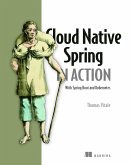Richard Halpern s book about tragic drama from Aeschylus to Beckett offers a new approach to the death of tragedy thesis propounded by George Steiner, Nietzsche, Freud, and others. Tragedy has never died, Halpern argues, but it has faced unprecedented challenges in capitalist modernity challenges that are given definitive intellectual form in the discourse of political economy. One of the most revolutionary arguments of Adam Smith s "Wealth of Nations "is that human happiness (or unhappiness) depends primarily on production rather than action on what we make rather than how we act in an ethical or political sense. By dislodging action from the summit of human endeavor, Halpern argues, political economy overturned classical conceptions of tragedy. His ambitious study offers nothing less than a new way of understanding the history of tragic drama, the challenges it faces, and the means at its disposal for surmounting them. "Eclipse of Action "will be of broad interest to literary critics, performance studies specialists, intellectual historians, and anyone interested in the relations between economics and culture. "








